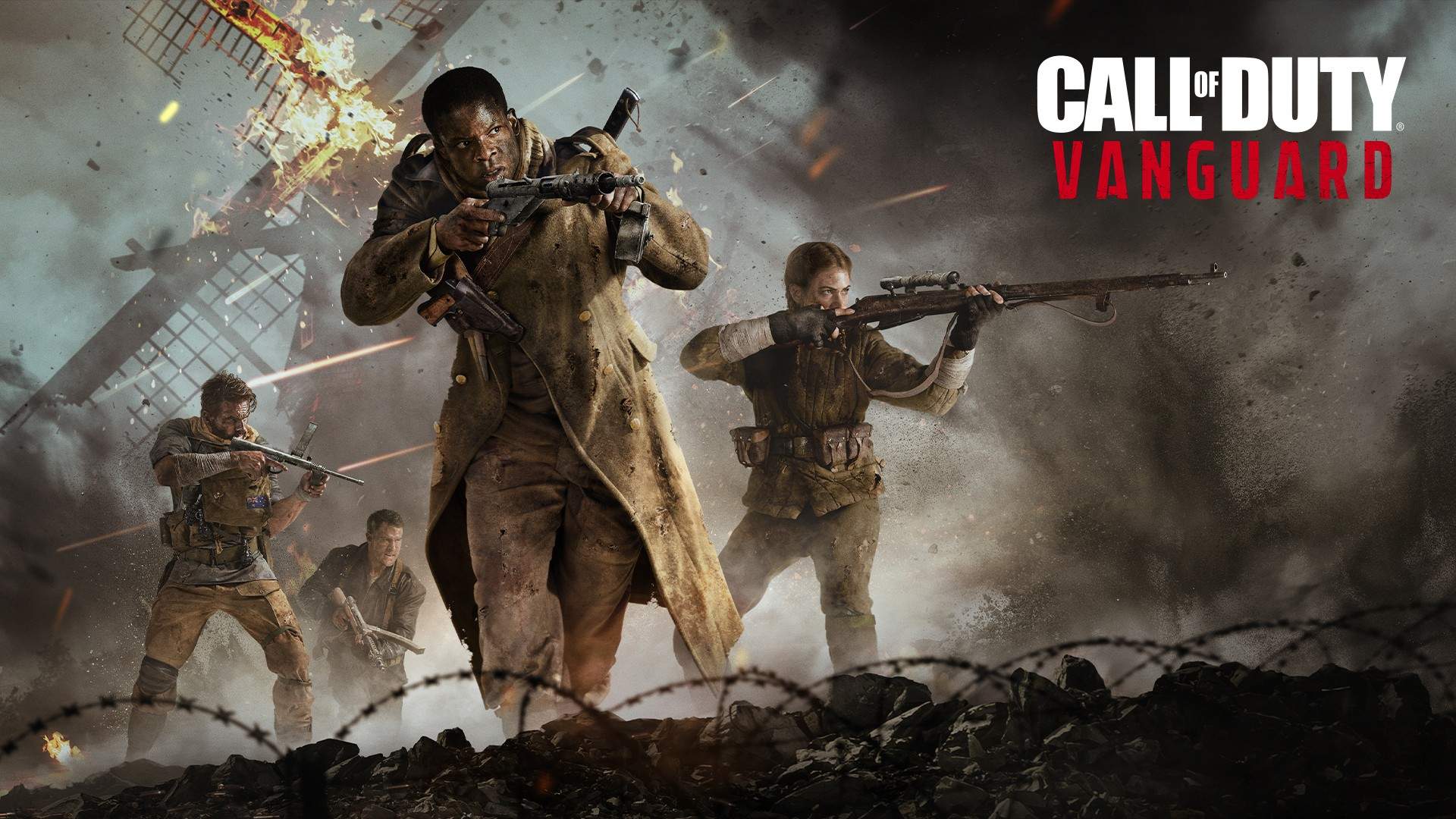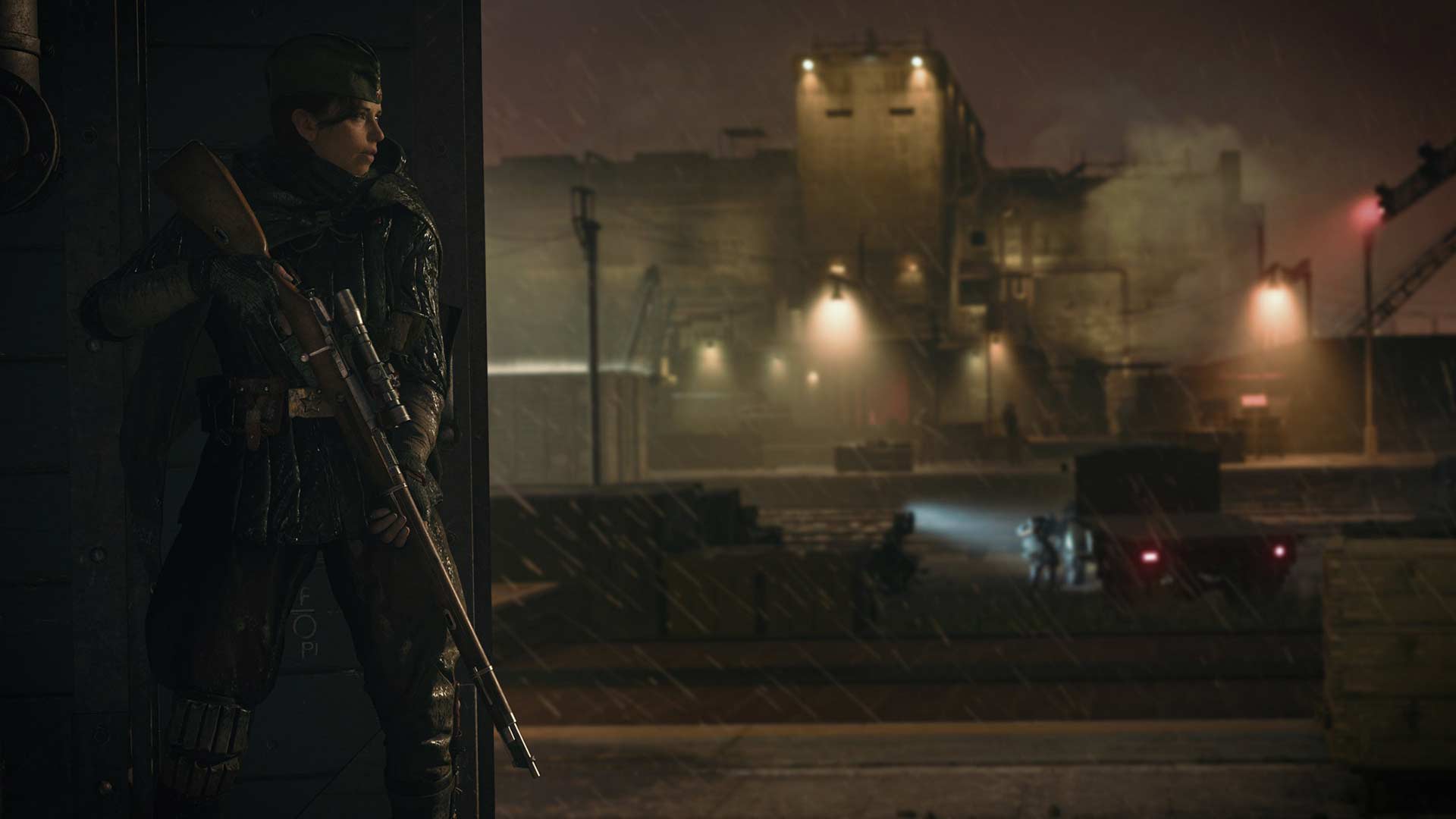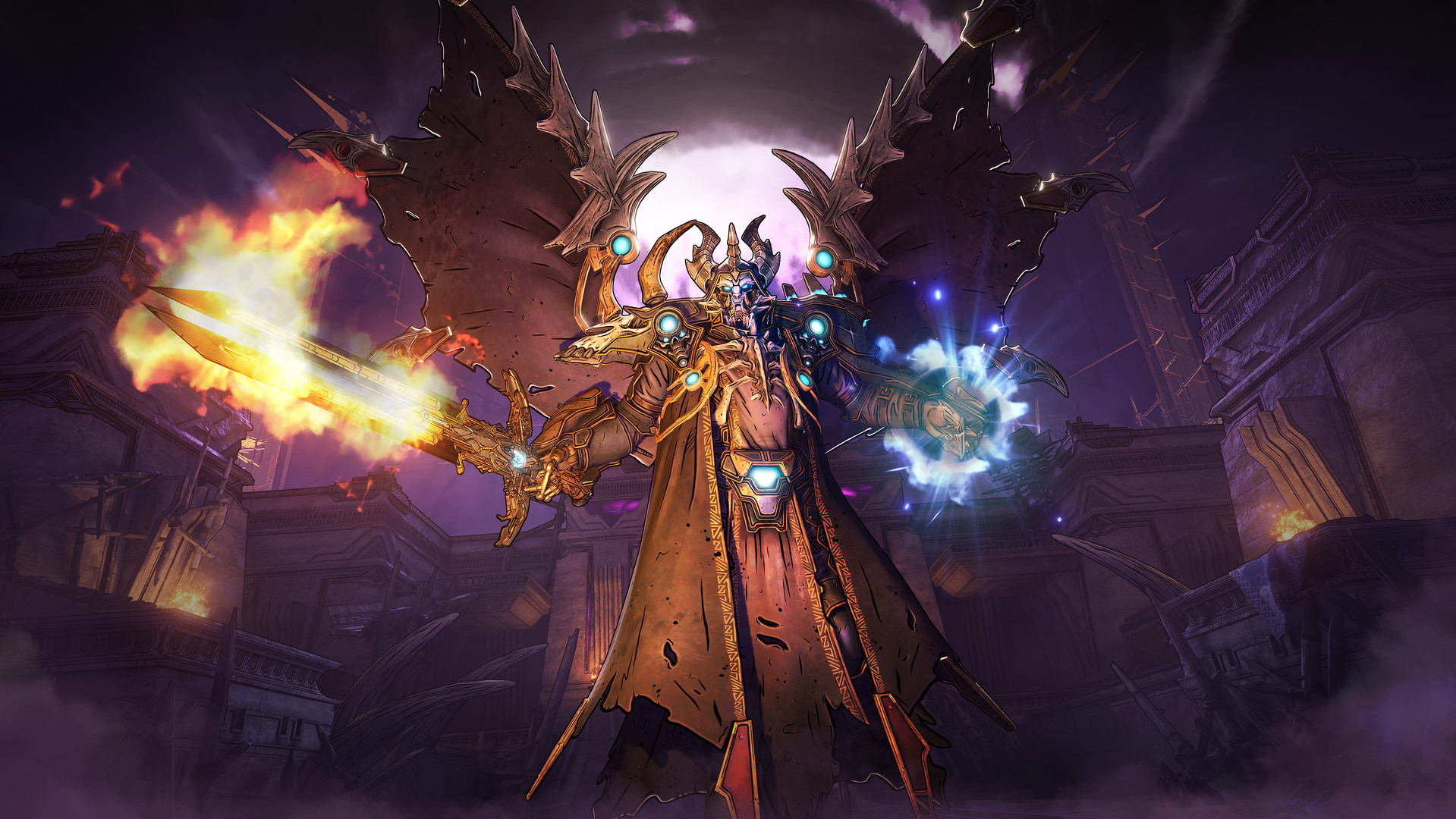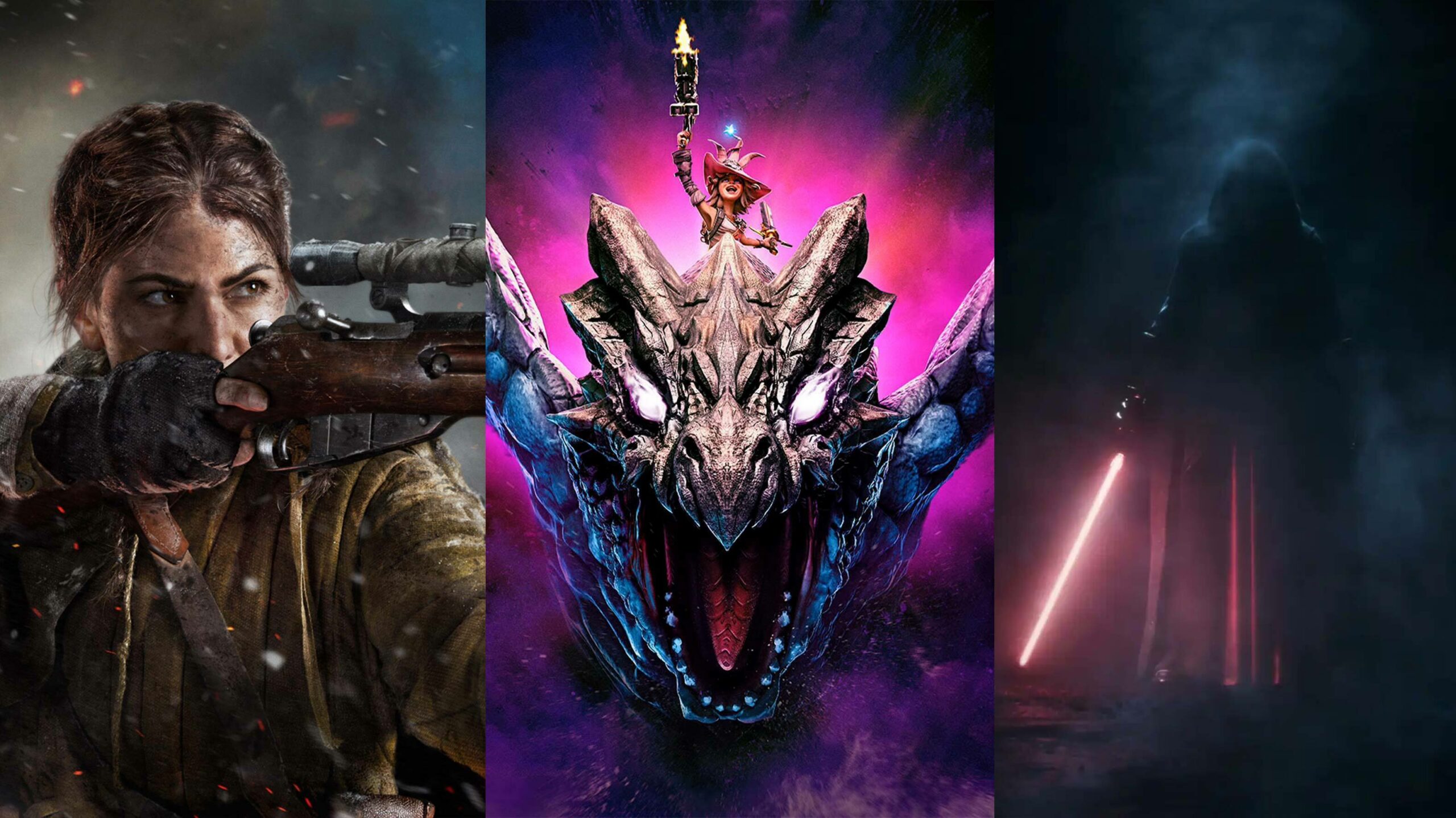
Marvel’s Spider-Man. Ratchet & Clank: Rift Apart. Call of Duty: Vanguard. Tiny Tina’s Borderlands. Star Wars: Knights of the Old Republic — Remake.
Beyond being high-profile video games in their own rights, they all have one thing in common: Canadian writer Sam Maggs. In the span of five years, she’s contributed to quite an extensive list of games across all kinds of genres and properties. It’s an impressive feat, especially given these titles are all big American games, and it capitalizes on years of playing games while growing up in London, Ontario.
“I’ve always been a big gamer. We had an Intellivision when I was a kid — Burger Time was my favorite. And then my first console of my own was the N64. Super Mario 64 was really formative for me — it’s why I still play all my games inverted on the Y-axis, which I know makes me a pariah, but so be it,” Maggs says with a laugh at Toronto’s Fan Expo event.
But it was, rather fittingly, the 1998 fantasy-RPG Baldur’s Gate from Canada’s own BioWare that got her to truly fall in love with video games. “I was obsessed with that game — I loved that I could play as a girl, so I felt like I could see myself in a game for the first time, kind of.”
In the years since, she’s had a prolific career that includes event hosting, entertainment journalism, non-fiction best-sellers, and graphic novels featuring the likes of Marvel, Transformers, and Rick & Morty. Throughout all of that, she’s kept a particular focus on how women can find enjoyment in the often male-dominated world of fandom. While navigating the con circuit for work, she says she started travelling in the same circles as a lot of BioWare developers, which eventually led to her getting her break in the gaming industry as an assistant writer.
Fast forward to the present and any one of these aforementioned games would seem impressive enough on their own, but Maggs’ continues to balance those alongside other writing gigs, like the novel The Unstoppable Wasp: Built on Hope, the Marvel Action: Captain Marvel comic, or even Netflix’s latest interactive Bear Grylls special. For Maggs, juggling all of these jobs is made much easier thanks to the variety that they offer.
“If I was writing five or six games at the same time, I would find it really difficult. But the fact that I’m writing in all of these different mediums keeps it really fresh, because — even though technically I’m just sitting at my computer writing all the time — it always feels like I’m doing something different. It always feels like something new — it keeps my brain interested.”
Specifically, she says it’s the inherently collaborative nature of game development that really helps in this regard.
“Writing a book, it’s mostly just me and my editor and my agent. Writing a comic, there are a few more people — you’ve got your illustrator, your artists, your colourist, your letterer. But in games, you can be working with teams of 1,000 people, all trying to execute on the same vision at the same time for like six years,” she says.
“And that is, I think, the biggest challenge — you have a lot of people who have to agree to what you’re making, and get buy-in on, to keep everybody enthusiastic about it and working towards the same goal. Not only on your team, but also at the executive level, and then the IP holder level. I mean, they’re paying a lot of money for it — these games cost hundreds of millions of dollars, so it totally makes sense. But the trade-off to that is, like, 40 million people are gonna play Call of Duty, but not that many people will ever read my book. So it’s a huge challenge, but the payoff is also incredibly unmatched.”
She’ll soon see some of that payoff — Sledgehammer’s Call of Duty: Vanguard, the latest entry in Activision’s massively popular shooter franchise, will release on consoles and PC on November 5th. For the player, it’s only been one year since the last COD, Cold War, which might lead some to hold a misconception about how “easy” these games are to make. But for someone like Maggs, who’s actually worked on one of the games, it’s a much longer and more thorough process than you might think.
“Individual studios do spend years working on these Call of Duty games and so much passion and dedication goes into them from the creative team,” she says. “I only have experience on Vanguard, but I can say that was especially, definitely true on Vanguard. We were all just so passionate about the story we were telling and what we were making from day one.”
That passion started from assembling a surprisingly diverse narrative team, for which she credits lead writer Stephen Rhodes. “Sort of in the same way that the game is about assembling this team of misfits, I would say Stephen kind of assembled this narrative team of misfits from all over the place. Like Tochi Onyebuchi, who’s way more talented than all of us — we’re lucky that he wrote on the game — and Brent Friedman and a bunch of other great folks. We’re all like a family now, which is pretty amazing.”
This all came about, she says, from a desire to craft a more unique kind of World War II story than Call of Duty has told in the past, especially Sledgehammer’s own Call of Duty: WWII. In Vanguard‘s campaign, players will follow five soldiers hailing from different Allied Nation frontlines, all of whom are directly inspired by real people.
These include Cameroonian-British paratrooper Arthur Kingsley, Soviet sniper Lt. Polina Petrova, Australian infantryman Lucas Riggs, British paratrooper Richard Webb, and American fighter pilot Wade Jackson, who all eventually come together to form the military unit Task Force One.
“[Sledgehammer] really wanted to make sure that the writer’s room looked like the characters we were trying to portray, so that we had a more authentic experience. That was where Tochi and I came in. But the rest of the team, like Belinda Garcia, and [Edmonton-based] Shelby Carlton and Alexa Ray Corriea, ended up being the best people for the job, regardless of their gender,” she says. “I think it’s great — anyone can enjoy these games, and tons of women do play these games, so there’s no reason for them to not also be making them.”
Maggs, for her part, was the lead writer on Polina, a nurse who didn’t actually enlist but was nonetheless forced to fight after the Germans came to her home. Polina is inspired by the 2,000-plus Soviet women snipers in World War II, including Lyudmila “Lady Death” Pavlichenko. Through Polina, Vanguard aims to explore the innocence that was stolen from so many during the war. Maggs, who holds a Master’s Degree in Victorian literature, says it was a “dream gig” to write for such a character.
“I actually used to write non-fiction history books about women in history, and little biographies about them. And so when I got brought on specifically to work on Polina, that was right in my wheelhouse — I already knew how to do all of that research. We were reading a lot about the real Russian women snipers during World War II, [which] was fascinating […] I’m a big dork for that — I find it really fun.”
During a New York Comic Con panel, Maggs noted that one of the team’s key objectives with Vanguard‘s campaign was to create “iconic” characters — something she says Call of Duty doesn’t really have right now. At Fan Expo, she elaborates on what she meant by that.
“For me, it’s all about making sure that they’re a real, three-dimensional person — that you look at this person and it’s not just like, ‘oh, they’re the funny one,’ or ‘they’re the girl.’ It’s about looking at Polina and saying, ‘What has she experienced in her life? How has that trauma shaped who she is? And how does she deal with that in what she’s trying to achieve and how the world is working against her?'”
Maggs says the campaign will explore these “different facets” of Polina. “One of my favourite things about Polina is that she deals with her trauma with a real wry sense of humor. I think that a lot of people use humour as a coping mechanism, and so that seemed to be a big hit on the team from the start.”
“They just let me show up and be like, ‘What if there was a side mission where a bunch of dumb shit happens?'”
Above all else, her writing comes down to characters, she says. “Anything I watch or read or play, for me, plot is fine, but it’s always about character. If I don’t care about the characters, the plot can be super interesting and twisty, but I still won’t care, because I don’t care about what’s happening to them. So I just try really hard to make characters that people can care about.”
She says that interest in character writing carries over to the Borderlands spin-off, Tiny Tina’s Wonderlands, releasing on March 25th, 2022. With the signature zany Borderlands humour mixed with a Dungeons & Dragons-inspired fantasy tabletop world, the game couldn’t be more different tonally from Vanguard. But it’s precisely that contrast, Maggs says, that makes the project uniquely appealing not just as a Borderlands fan, but as a writer as well.
“I’m a big fan of humor in video games. I think it’s a lot more difficult to tell an impactful story with humor than it is to tell a serious grimdark story and make it feel important. That’s why I think Gearbox is so amazing with what they do.”
It’s also a different experience for her from Vanguard because she was brought in later on in development to help flesh out the world through, as she puts it, “really dumb” sidequests.
“They just let me show up and be like, ‘What if there was a side mission where a bunch of dumb shit happens?’ And they’re like, ‘that’s funny!’ And then I would sit in a room all day with these amazing, talented writers from Gearbox and we would go through my scripts and it would be like a comedy writer’s room where they’d be like, ‘that joke isn’t funny.’ And then we would punch it up together and then we do that over and over and over again,” she says. “So it was nice for me because there was a lot less serious pressure and responsibility — my job was to show up and make silly stuff that is fun and hilarious and adds to it, but there wasn’t that pressure of making the core story and all the characters.”
In addition to being a “huge Borderlands fan,” she says enjoys getting to work on a world that’s already been fleshed out through multiple mainline games and spin-offs.
“You come in and you know all the Borderlands characters you have to work with [and] you know the world. Then I just got to play with them. Which is what I like about working with established IP — you have that box to play in, and then I just got to play in it. It was truly a dream job. Just the best and all the guys there are incredible.”
It was also a big surprise for her to find out about some of the big-name stars attached to the game.
“When they told me that Andy Sandberg and Wanda Sykes were involved, it tripped me up for a minute because I felt a lot of pressure. I was like, ‘I’m not funny enough for Andy Samberg to read anything that I write ever,’ and I had to take a moment and be like, ‘it’s ok,'” she says, laughing.
But perhaps her most surreal upcoming project is Star Wars: Knights of the Old Republic — Remake. Developed by Austin, Texas-based Aspyr, it’s a PS5 reimagining of BioWare’s classic 2003 RPG, regarded by many to be one of the greatest games of all time. It’s also a full-circle situation for Maggs, whose career in gaming was, after all, kicked off by BioWare. Notably, she says the team at Aspyr has “a lot” of former BioWare developers, and her past work with them on Anthem led to her being approached to write on KOTOR Remake.
“I was like, ‘you tell me when and where and I will be there — obviously, yes.’ And it’s great because all those BioWare folks are so talented.” When KOTOR Remake was officially revealed at September’s PlayStation Showcase, Maggs took to Twitter to express her joy at “finally” being able to make “a BioWare game.” What she meant by that, specifically, she says, is that while she worked on Anthem, it wasn’t the classic type of game that BioWare is best known for.
“It doesn’t matter if you don’t know how to code — you can make your own choice-based text choose-your-own-adventure kind of game.”
“I worked on Anthem, but I was always sorry that I didn’t get the experience of working on a real choice-based, narrative-driven, meaty, BioWare-style game. And so this really gives me the opportunity to do that. And [BioWare] was my first job in video games — [BioWare writer] Patrick Weekes was my first mentor in games,” she says. “So I was very fortunate to learn from the people that I think are the best in the industry at writing video games, especially choice-based video games. I haven’t had the opportunity to write any choice-based stuff since then, so now I finally get to do this thing I was training for.”
Of course, she’s not at liberty to reveal any specifics about the nascent project, lest a Lucasfilm-ordered Scout Trooper take fire. But she did speak broadly about what she’s most excited about with the remake.
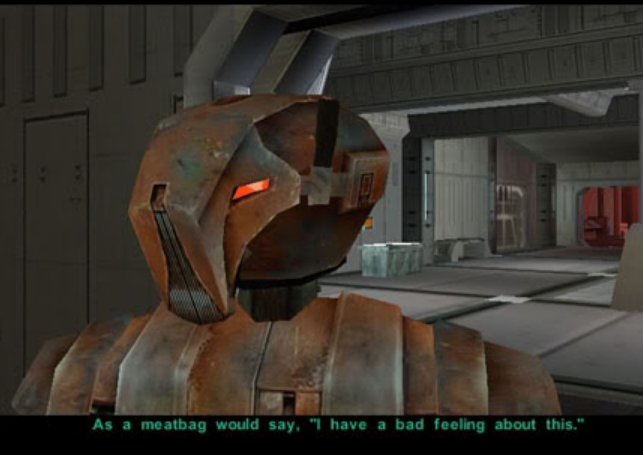
HK-47 (Image credit: Aspyr/Lucasfilm).
“It’s such an iconic story and the characters are amazing. We were talking about iconic characters — almost every character in KOTOR is iconic. It’s hard for me to pick a favourite,” she says. “HK-47, of course, is, as a humour person, one of my all-time favourite Star Wars characters. So it’s been a real delight and I love working with the Lucasfilm crew, and the Aspyr gang is just so dedicated. I’m really lucky to be there — it’s been a blast.”
Something more concrete that she can leave us with, though, is a handful of tips on how to break into the industry, especially if you’re a fellow Canadian who grew up marvelling at the wonders of games like BioWare’s.
“…the games industry is exploding, and we need so many more writers.”
“Make something and put it online. Make your own game and use a program like Twine. It doesn’t matter if you don’t know how to code — you can make your own choice-based text choose-your-own-adventure kind of game. And you can publish it yourself for free online, and that can serve as a sample of your work. Because people who want to hire you need to see what your voice is — we need to see what your style is, what are you bringing to the table,” she says.
“We also just need to see that you can start and finish something. Most people who say they want to be a writer never finished anything so I can never read it. And if I can’t read their stuff, then I can’t figure out whether or not to hire them. So I will tell you that if you start and finish something and publish it and put it online, you are already ahead of like 90 percent of other people who say they want to do this. When I was getting hired at BioWare for my first job, my writing test was to make a Twine game set in Dragon Age. And so it’s real experience. And then you can show your voice — the games industry is exploding, and we need so many more writers. We need your voice, your unique experience, your unique take, so put it out there so that I can hire you!”
Header image credit: Activision, Gearbox, Aspyr/Lucasfilm
This is the latest entry in our monthly Canadian developer series. Last month’s entry, which was focused on the developers behind the Canadian Next Lev’Elles ‘women in gaming’ event, can be found here.
Note: Activision-Blizzard, the company that owns Call of Duty, is currently embroiled in a major misconduct scandal.
MobileSyrup may earn a commission from purchases made via our links, which helps fund the journalism we provide free on our website. These links do not influence our editorial content. Support us here.


